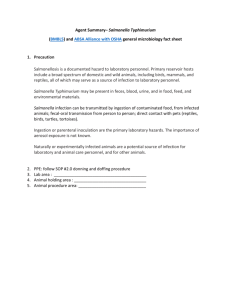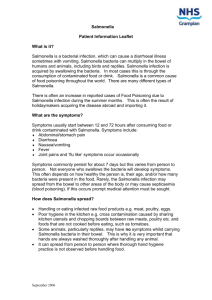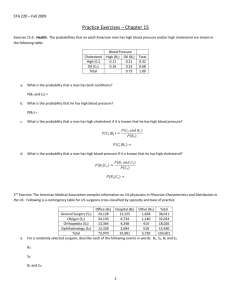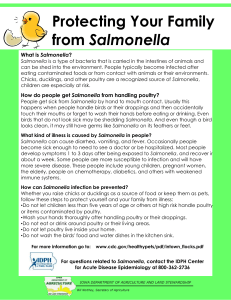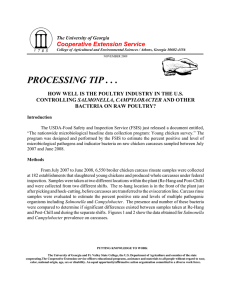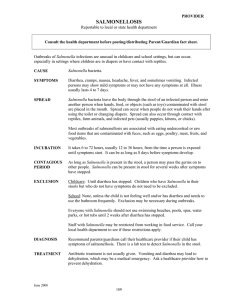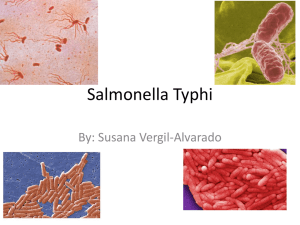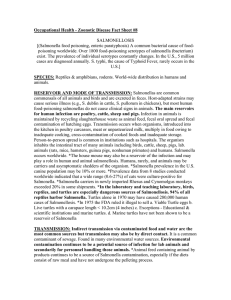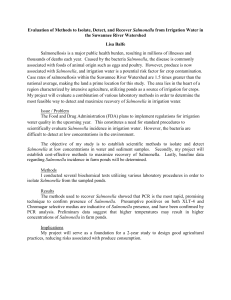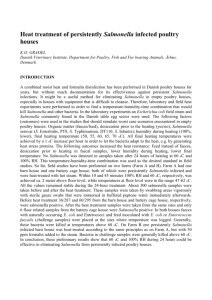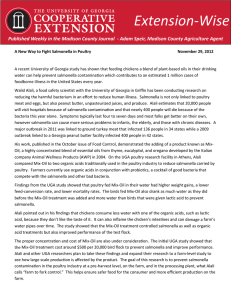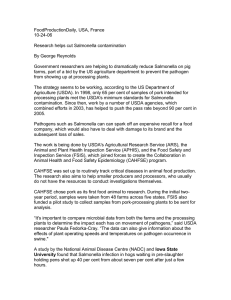What you need to know about Salmonella
advertisement
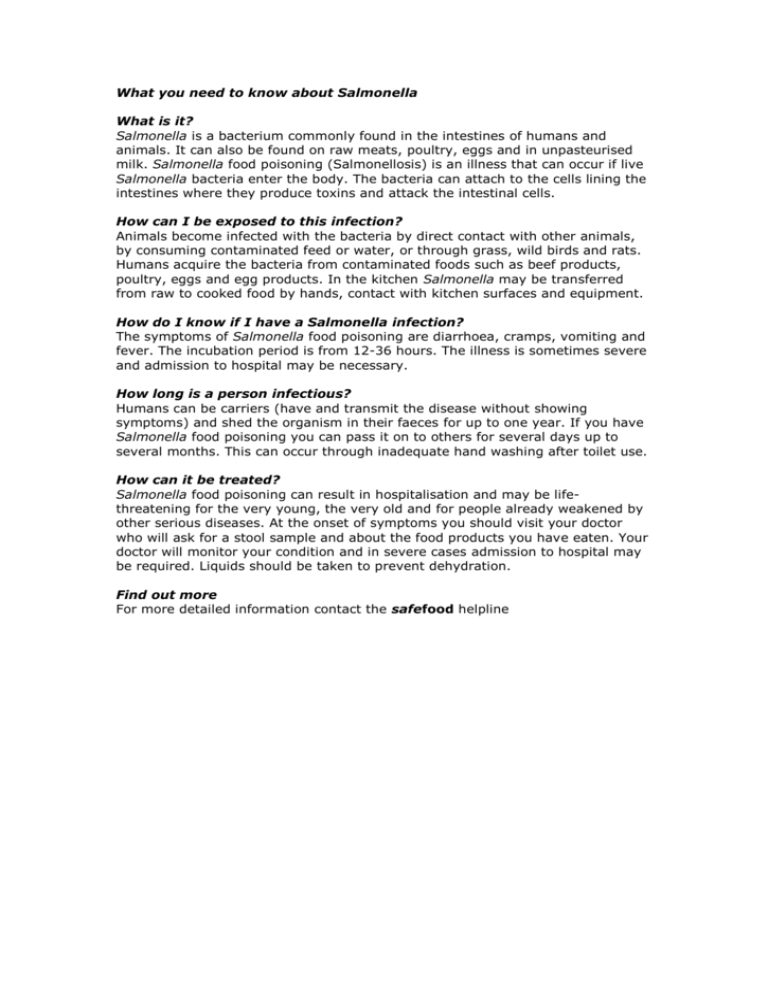
What you need to know about Salmonella What is it? Salmonella is a bacterium commonly found in the intestines of humans and animals. It can also be found on raw meats, poultry, eggs and in unpasteurised milk. Salmonella food poisoning (Salmonellosis) is an illness that can occur if live Salmonella bacteria enter the body. The bacteria can attach to the cells lining the intestines where they produce toxins and attack the intestinal cells. How can I be exposed to this infection? Animals become infected with the bacteria by direct contact with other animals, by consuming contaminated feed or water, or through grass, wild birds and rats. Humans acquire the bacteria from contaminated foods such as beef products, poultry, eggs and egg products. In the kitchen Salmonella may be transferred from raw to cooked food by hands, contact with kitchen surfaces and equipment. How do I know if I have a Salmonella infection? The symptoms of Salmonella food poisoning are diarrhoea, cramps, vomiting and fever. The incubation period is from 12-36 hours. The illness is sometimes severe and admission to hospital may be necessary. How long is a person infectious? Humans can be carriers (have and transmit the disease without showing symptoms) and shed the organism in their faeces for up to one year. If you have Salmonella food poisoning you can pass it on to others for several days up to several months. This can occur through inadequate hand washing after toilet use. How can it be treated? Salmonella food poisoning can result in hospitalisation and may be lifethreatening for the very young, the very old and for people already weakened by other serious diseases. At the onset of symptoms you should visit your doctor who will ask for a stool sample and about the food products you have eaten. Your doctor will monitor your condition and in severe cases admission to hospital may be required. Liquids should be taken to prevent dehydration. Find out more For more detailed information contact the safefood helpline
